You can create a natural pest-repellent garden by using plants with unique defense mechanisms to deter pests and create a balanced ecosystem. Plants like borage, jewel blend nasturtium, and tetra dill repel unwanted insects, reducing the need for chemical pesticides and welcoming beneficial insects. These plants have evolved to release pheromones, contain essential oils, or have physical characteristics that confuse or deter pests. By incorporating these plants into your garden, you can create a natural barrier against unwanted critters. Continue exploring these natural pest repellents to discover more ways to keep your garden pest-free.
Key Takeaways
• Certain plants, like borage, nasturtium, and dill, naturally deter pests, reducing the need for chemical pesticides.
• Plants have evolved unique defense mechanisms, such as releasing pheromones or containing essential oils, to repel insects.
• Specific plants target specific pests, like lavender repelling flies and mosquitoes, and peppermint targeting spiders and ticks.
• Incorporating pest-repelling plants into your garden creates a balanced ecosystem, welcoming beneficial insects while keeping unwanted pests away.
• Plants like tansy, lavender, and chrysanthemums are easy to grow and maintain, providing a natural barrier against insects in your garden.
Plants With Natural Pest Control
As you cultivate your garden, consider enlisting the help of plants with natural pest control, like borage, jewel blend nasturtium, and tetra dill, which can effectively deter unwanted insects without harming the environment.
These plants have natural defenses that repel pests, creating a balanced ecosystem in your garden. By incorporating them into your garden design, you'll reduce the need for chemical pesticides and create a welcoming space for beneficial insects.
Borage, for instance, deters cabbage white butterflies, while jewel blend nasturtium repels aphids and whiteflies. Tetra dill is known to repel aphids and spider mites.
Mechanisms of Insect Repellency
You're likely wondering how these garden guardian plants manage to repel pests so effectively, and the answer lies in their clever defense mechanisms.
These plants have evolved unique ways to deter insects, ensuring their own survival and protecting your garden from unwanted critters. Some plants release pheromones, special chemical signals that repel or confuse pests.
Others contain essential oils that insects find unappealing, while some have physical characteristics that make them appear threatening to certain insects. Additionally, certain plants produce strong scents that mask the aroma of their neighboring plants, making it difficult for pests to locate their preferred snacks.
Effective Plants and Targets
With these clever defense mechanisms in place, you can harness the power of certain plants to target specific pests. This section will explore the most effective plants and the pests they repel.
You'll discover that lavender repels flies, fleas, and mosquitoes, while peppermint takes care of spiders, ticks, and beetles.
Borage deters cabbage white butterflies, and rosemary keeps pests out of your garden and home. Thyme's strong aroma repels cabbage worms and corn earworms, and chrysanthemums contain pyrethrin, a natural insecticide.
Marigolds emit a strong scent that repels nematodes and aphids, while basil and catnip also join the fight against pests.
Tansy's Pest Repelling Properties
Tansy's bright yellow flowers and essential oil, which contains thujone, effectively repel fleas and mosquitoes, making it a valuable addition to your garden's pest defense system.
As you incorporate tansy into your garden, you'll notice a decrease in unwanted pests.
The strong scent of tansy's essential oil confuses and deters fleas and mosquitoes, keeping them away from your prized plants.
Since tansy is relatively easy to grow and maintain, it's an excellent choice for gardeners of all levels.
By planting tansy alongside your favorite flowers and vegetables, you'll create a natural barrier against pesky insects.
With its bright yellow blooms and potent essential oil, tansy is a simple yet effective way to protect your garden from unwanted pests.
Lavender's Insect Repelling Power
As you plant lavender in your garden, its heat, cold, and drought tolerance make it an ideal addition to your natural pest defense system. You'll appreciate its ability to repel unwanted visitors like flies, fleas, and mosquitoes. Lavender's secret lies in its camphor content, which acts as a natural insect repellent.
By incorporating lavender into your garden, you'll create a welcoming space for beneficial insects while keeping pests at bay. Plus, its calming aroma can even benefit you and your family, promoting relaxation and serenity. With minimal maintenance required, lavender is an excellent choice for gardeners of all skill levels.
Borage's Garden Benefits
By incorporating borage into your garden, you'll not only deter pests like cabbage white butterflies but also attract beneficial insects and enhance pollinator activity. This wonderful herb is a natural pest repellent, creating a welcoming environment for helpful bugs while keeping unwanted ones at bay.
As an added bonus, borage flowers can be used as a decoration or even as a culinary delight, boasting a unique cucumber-like flavor. By including borage in your garden, you'll experience a more balanced ecosystem, where beneficial insects thrive and pests are kept under control.
This simple yet effective addition can make a significant impact in the health and vitality of your garden.
Peppermint's Pest Repelling Ability
Since you're looking for a natural way to shoo pests out of your garden, peppermint's impressive pest-repelling ability is definitely worth exploring.
This hardy perennial is known to repel a wide range of unwanted visitors, including spiders, ticks, flies, beetles, ants, moths, and roaches.
Peppermint's potent oils are the secret to its pest-repelling power, and it's surprisingly easy to incorporate into your garden.
You can plant it around the perimeter of your garden or intersperse it among your vegetables and flowers. Just be aware that peppermint can spread quickly, so consider containing it to prevent it from taking over.
With its natural pest-repelling abilities and easy growth habits, peppermint is a great addition to any garden looking to keep pests at bay.
Rosemary's Natural Defense
You can add another powerful ally to your garden's defense arsenal with rosemary, a fragrant, low-maintenance herb that's been used for centuries to naturally repel pests.
As you plant rosemary in your garden, you're not only adding a fragrant and attractive element, but you're also harnessing its natural defense mechanisms. Rosemary contains compounds like camphor, which are effective in repelling pests in gardens and homes.
By incorporating rosemary into your garden design, you'll be creating a natural barrier against unwanted insects. This herb is easy to care for and can thrive in a variety of conditions, making it an ideal addition to your garden's defense strategy.
With rosemary on your side, you'll be well on your way to creating a pest-free garden haven.
Thyme's Strong Aroma Defense
With thyme's potent aroma, you can create a natural barrier against pests like cabbage worms, corn earworms, and tomato hornworms in your garden. Thyme's strong scent confuses and repels these unwanted visitors, protecting your plants from damage.
You can plant thyme alongside vulnerable crops to keep pests away, or use thyme oil to create a natural insect repellent spray. Thyme is easy to grow and maintain, making it an excellent addition to your garden.
Additional Garden Guardian Plants
Beyond thyme, other garden guardian plants offer unique defenses against pests. Lavender, peppermint, and rosemary can be strategically planted to create a protective barrier around your crops. You can also consider borage, which deters pests like cabbage white butterflies and enhances pollinator activity.
Jewel Blend Nasturtium and Tetra Dill are additional options that can help keep unwanted insects away. By incorporating these plants into your garden, you'll create a natural defense system that repels pests without harming the environment. With a little planning, you can enjoy a thriving, pest-free garden that's perfect for growing your favorite fruits and veggies.
Frequently Asked Questions
Can I Grow Pest-Repelling Plants in Containers or Indoor Pots?
You're wondering if you can grow pest-repelling plants in containers or indoor pots? Absolutely! Many plants that repel pests can thrive in containers or indoor pots.
In fact, this is a great way to bring natural pest control into your home or onto your patio. Choose a pot that's at least 6-8 inches deep, and select a well-draining potting mix.
Most pest-repelling plants require plenty of sunlight, so place them near a sunny window or outdoors in a sunny spot.
Do Garden Guardian Plants Require Special Soil or Care?
You're wondering if garden guardian plants require special soil or care. The good news is that most of these plants are low-maintenance and adaptable. They can thrive in a variety of soils, from well-draining potting mixes to regular garden soil.
However, some plants like lavender and rosemary prefer well-draining soil, while others like mint and basil can tolerate moist soil. With proper watering and sunlight, your garden guardian plants will flourish.
Can I Use Pest-Repelling Plants in Combination With Pesticides?
You're wondering if you can use pest-repelling plants alongside pesticides. The answer is yes, but with caution.
Combining these methods can be effective, but be aware that pesticides can harm or kill the beneficial insects attracted by your pest-repelling plants.
Start by using the plants as a natural deterrent, and only use pesticides as a last resort.
This balanced approach will help maintain a healthy ecosystem in your garden.
How Quickly Do Garden Guardian Plants Start Repelling Pests?
You're wondering how quickly garden guardian plants start repelling pests. The good news is that many of these plants start working their magic soon after planting.
Some, like basil and mint, can start repelling pests within a few weeks, while others, like lavender and rosemary, may take a few months to reach their full potential. Factors like soil quality, sunlight, and watering can impact their effectiveness.
With proper care, you can expect to see results within a few weeks to a few months.
Are Garden Guardian Plants Safe for Pets and Children?
As you consider using garden guardian plants, you might wonder if they're safe for your pets and kids. Generally, most garden guardian plants are non-toxic and safe around children and pets.
However, it's still important to exercise caution. Some plants, like lavender and chamomile, can cause allergic reactions in rare cases.
Keep an eye on your little ones and furry friends when introducing new plants to your garden or home.


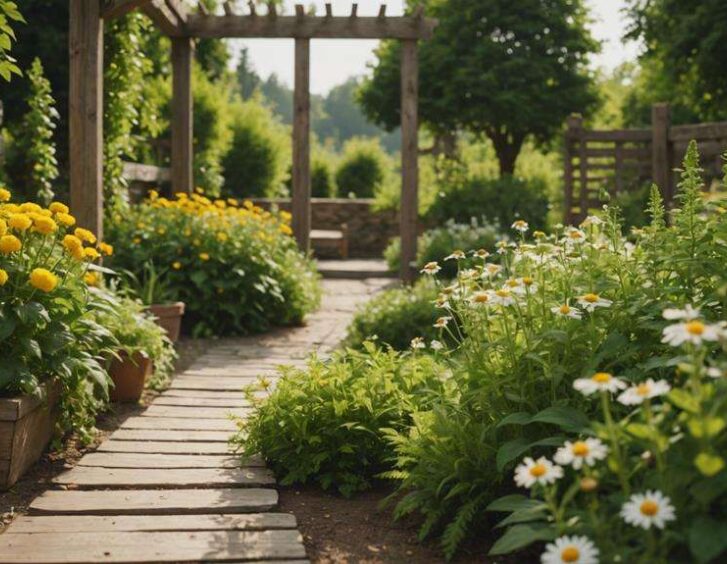







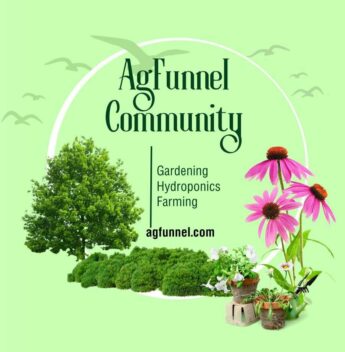
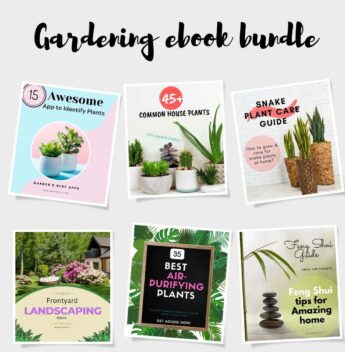
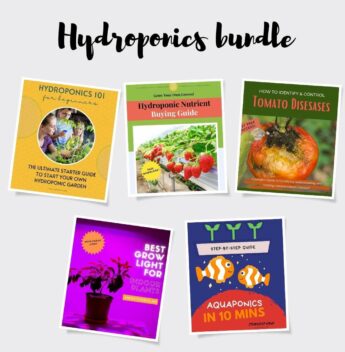



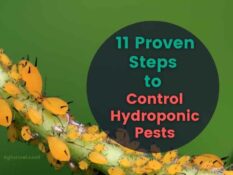
 Lalmon LLC. All rights reserved
Lalmon LLC. All rights reserved